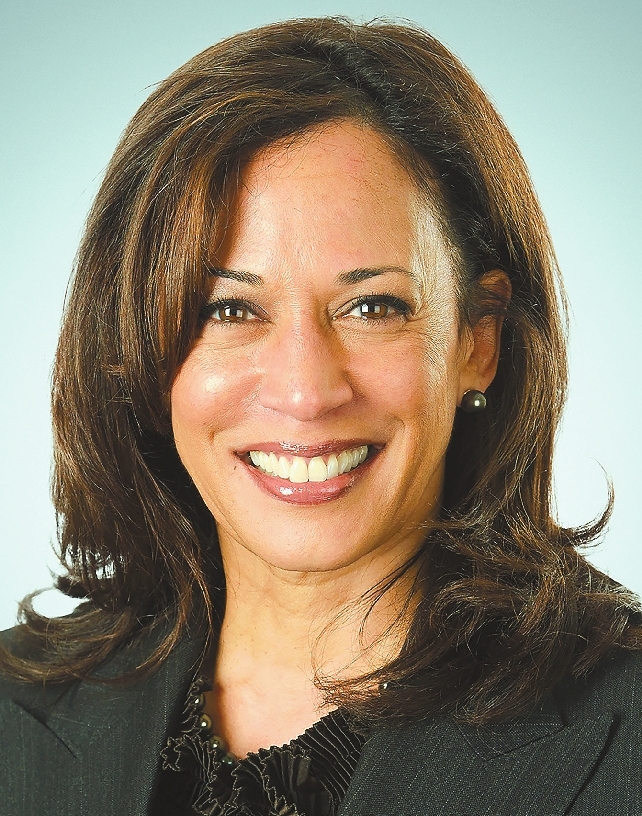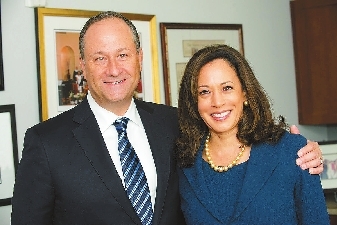

KAMALA HARRIS dropped out of the 2020 U.S. presidential race Tuesday, closing the chapter on a 11-month candidacy that began with high expectations but failed to capitalize on a viral debate performance this summer and struggled with reported tumult among the campaign’s staff. The most high-profile Democrat to exit the contest to date, Harris was initially regarded as a top-tier candidate. Her swift exit from the race months before the first ballots were cast has invited speculation about what went wrong. “I’ve taken stock and looked at this from every angle, and over the last few days have come to one of the hardest decisions of my life,” Harris said in a statement Tuesday. “My campaign for president simply doesn’t have the financial resources we need to continue.” While the timing was a surprise, the announcement wasn’t. In recent days, news swirling around the campaign made it apparent that it was a question of when, not if, Harris would give up the presidential pursuit that she launched in January with a high-energy rally that brought 20,000 people to the streets of Oakland. “I’m running for president because I love my country,” she said at that rally. “I’m running to be a president by the people, of the people, for all people.” But on Tuesday, she admitted that run was over. “In good faith, I can’t tell you, my supporters and volunteers, that I have a path forward if I don’t believe I do,” she said in an emailed message. “So, to you my supporters, it is with deep regret — but also with deep gratitude — that I am suspending my campaign today.” Harris is one of seven candidates who had already qualified for the Dec. 19 Democratic presidential debate in Los Angeles by hitting polling and campaign-contribution goals. But that’s been about the only good news her campaign has had in recent weeks. In July, the former California attorney general and San Francisco district attorney was one of the front runners with 15 percent support in the polls, behind former Vice President Joe Biden, but slightly ahead of Massachusetts Sen. Elizabeth Warren and Vermont Sen. Bernie Sanders. Since then, however, Harris has been in a slow, steady slide, falling further behind the leaders, getting passed by South Bend Mayor Pete Buttigieg and slipping into single digits. The most recent RealClearPolitics polling average found her running sixth at 3.4 percent, behind even Michael Bloomberg, the billionaire former mayor of New York City who has been in the race for just two weeks. The financial hurdles were insurmountable indeed, Harris’ aide said. By the end of last week, Bloomberg will have spent on advertising alone twice what Harris has raised, with more on the way. The fundraising woes, however, were far from her only problem. There was a growing feeling that Harris hadn’t provided a clear, coherent message about what she and her campaign stood for and what she would bring to the White House that the other candidates wouldn’t. That indecision was on full display earlier this year when she vacillated on how exactly she would revise the health-care system, at first signing on with Sanders’ government-only insurance plan and then easing away to come up with a plan that allowed some private insurance. Her decision in late October to cut her campaign staff and focus all her effort on Iowa left hard feelings among campaign workers suddenly out of a job. The campaign insisted that the plan to refocus the campaign had been planned for a while, but political staff shakeups don’t happen when everything is going well. There has been plenty of sniping, both inside and outside the campaign. In a Nov. 11 resignation letter obtained by the New York Times, Kelly Mehlenbacher, state operations director for Harris, slammed the campaign and its leaders. “This is my third presidential campaign and I have never seen an organization treat its staff so poorly,” Mehlenbacher said. “While I still believe that Senator Harris is the strongest candidate to win in the General Election in 2020, I no longer have confidence in our campaign or its leadership.” Mehlenbacher immediately signed on with the Bloomberg campaign. Born in 1964 in Oakland to Indian and Jamaican immigrants, Harris was a groundbreaking candidate by all measures. Harris’ mother, a well-known researcher for breast cancer from India, and father, an economics professor at Stanford University, divorced when she was a kid. Consequently she and her younger sister, Maya Harris, were raised by their mother, who eventually relocated to Montreal, Canada. Harris said she has never felt insecure or struggled with identity issues. In 2020, she became the first African-American attorney to be elected attorney general of California. She also made history as the first woman to serve in that position. In 2016, Harris was elected as a Democrat to the U.S. Senate, making her the second female of African or Asian descent to serve in such a role. As her star has risen, she’s also made it a point to advise and promote other candidates of color, including women and first-time candidates. “My mother used to tell me, ‘Kamala, you may be the first to do many things. Make sure you are not the last,’” she’s said. During the 2018 elections, Harris offered counsel and endorsements to several successful Democrats, including Jahana Hayes, London Breed and Lucy McBath. While she’s served in the Senate, Harris has also been at the forefront of efforts to address racial discrimination, slamming now-Supreme Court Justice Brett Kavanaugh for using racist dog whistles in a past op-ed and opposing other judicial nominees like Thomas Farr because of his past ties to voter suppression efforts. Harris has repeatedly emphasized that such fights are not only important but exceedingly personal. Harris has also established herself as a chief defender of immigrant rights, especially as the Trump administration has attempted a wholesale overhaul of many of them. She has introduced multiple bills targeting the treatment of migrant children and families by border patrol and U.S. Immigration and Customs Enforcement. Much of the scrutiny on Harris has centered on the time she spent as a prosecutor in California, with many progressives wondering how certain “smart on crime” stances align with her current policy positions. Her supporters acknowledge her shortcomings but also say she’s fought for key reforms like establishing one of the first databases on police shootings in the country. “Kamala Harris has spent her career fighting for reforms in the criminal justice system and pushing the envelope to keep everyone safer by bringing fairness and accountability,” Lily Adams, a spokesperson for Harris, said. With Harris out, the Democratic primary loses some of the diversity the party has touted. Without Harris, no candidate who has qualified for the December debate is a person of color. “The Democratic field became much less diverse today, after the only black woman in the presidential race dropped out,” said Aimee Allison, founder of She the People, a national political network of women of color. When Harris launched her campaign, Allison said, “it was evident ... that she would be a formidable contender for the White House — one who was able to attract a multiracial and enthusiastic base that would fuel her historic bid. Rick Zbur, executive director of Equality California, an LGBTQ rights organization, also talked about the broader significance of Harris’ campaign. “Kamala’s historic campaign has already inspired millions of young people — young women and people of color, in particular — across the country,” he said in a statement. “As a half-black, half-Indian daughter of immigrants competing at the highest level, she has paved the way for future generations of leaders to run for office, too.” As a sitting senator, Harris will remain in the middle of Washington’s political rough and tumble. She said she’s looking forward to it. “I want to be clear,” Harris said. “Although I am no longer running for president, I will do everything in my power to defeat Donald Trump and fight for the future of our country and the best of who we are.”(SD-Agencies) | 
